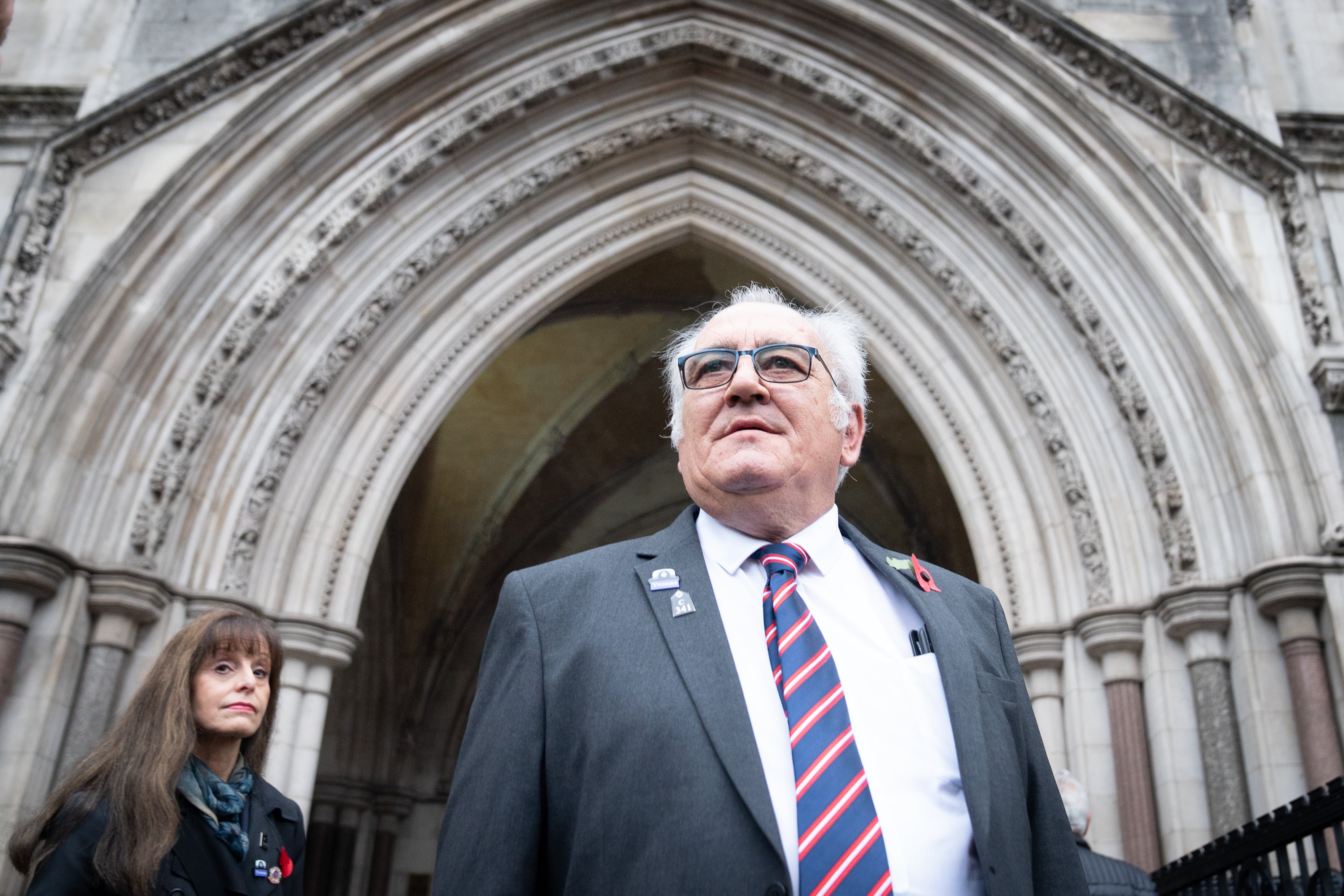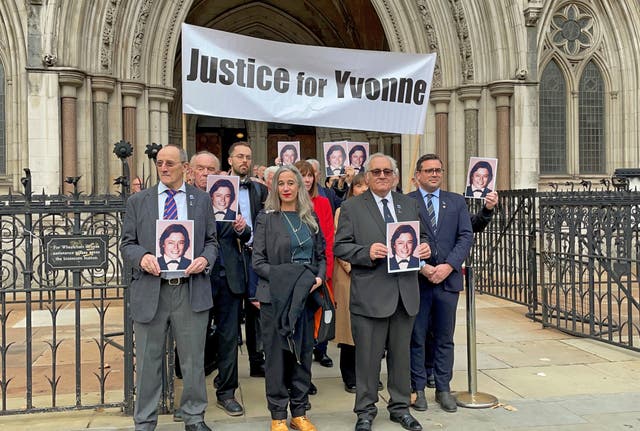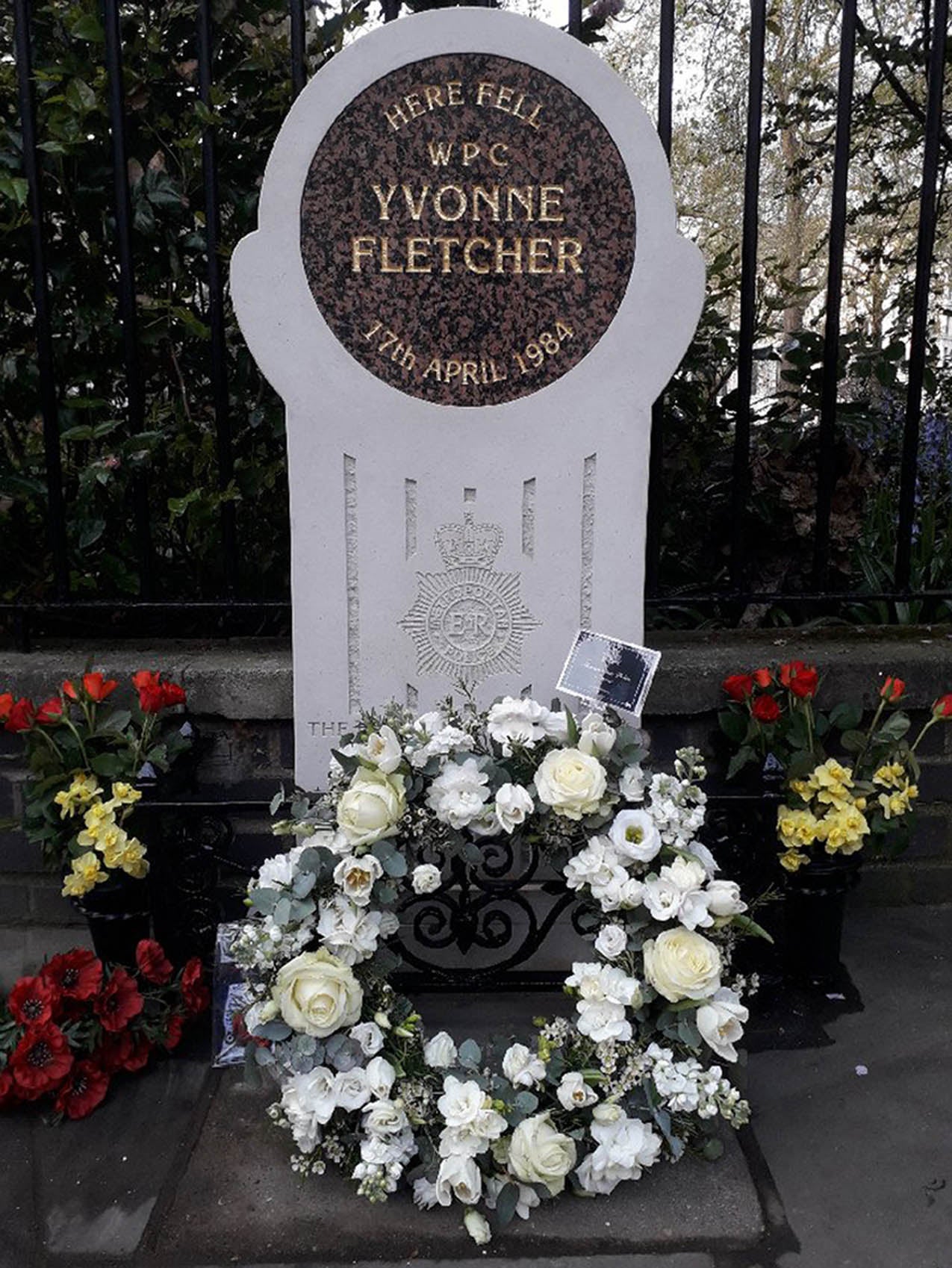
A former aide to Colonel Muammar Gaddafi is to challenge a judge’s conclusion that he was jointly responsible for the fatal shooting of police officer Yvonne Fletcher in 1984.
Pc Fletcher, 25, was shot while policing a demonstration against the former Libyan leader outside his country’s embassy in St James’s Square in central London on April 17 1984.
Her former colleague and close friend John Murray, who cradled her as she lay dying and promised to find those responsible, last year brought a civil action at the High Court in London against Saleh Ibrahim Mabrouk – a senior member of the pro-Gaddafi Libyan Revolutionary Committee that ran the embassy at the time.

Mr Justice Martin Spencer ruled in November last year that Mr Mabrouk – who denied any wrongdoing – “clearly assisted in the commission of the shooting” and was jointly liable with the unknown gunmen.
Speaking after the ruling Mr Murray, then 66, said justice for his friend and colleague was “finally achieved”.
However, Mr Mabrouk – who did not participate in the High Court trial, but previously denied any involvement in Pc Fletcher’s death – is now bringing a bid to appeal against the ruling.
He will ask Court of Appeal judges for permission to challenge the ruling at a hearing on July 6.
During the three-day trial last year, the court heard Mr Murray, who has suffered post-traumatic stress disorder (PTSD) since the incident, was seeking “vindicatory” damages for assault and battery.
Mr Justice Martin Spencer said in his judgment that “those responsible for the shooting of Yvonne Fletcher also bear liability” to Mr Murray.
He added: “I am satisfied on the balance of probabilities that there existed a common design to respond to the planned anti-Gaddafi protest by using violence.”
The judge said the evidence pointed to Mr Mabrouk being an “active participant” in a “common design to fire upon the demonstrators”.
He concluded: “Mr Murray has succeeded in showing that the defendant Saleh Ibrahim Mabrouk is jointly liable with those who carried out the shooting of Yvonne Fletcher, for the battery inflicted upon her”.
In a statement after the ruling on Tuesday, Mr Murray said: “My promise to Yvonne Fletcher to find those responsible for the shooting and to get justice has taken a huge step forward after all these years.”
Pc Fletcher’s family said in a statement that the court judgment served as a reminder of the “tragic events” that had “a devastating and lifelong effect on Yvonne’s family and colleagues”.
“Yvonne will always be in our thoughts and we will continue to be in close contact with New Scotland Yard regarding all aspects of her case,” they added.
 Retired police officer John Murray, second right, outside the Royal Courts of Justice in London after he won his High Court victory (Jess Glass/PA)
Retired police officer John Murray, second right, outside the Royal Courts of Justice in London after he won his High Court victory (Jess Glass/PA)
Mr Murray said the High Court trial “should not have been necessary”, hitting out at “late interference” from the Government when it previously “refused” to allow “vital evidence” to be used in an ultimately unpursued criminal prosecution.
He added: “Today, we have proven that we were right all along. Saleh Ibrahim Mabrouk was responsible for Yvonne’s death. Everything we have done leading up to this verdict has been for Yvonne. Today we have finally achieved justice for Yvonne.”
The court heard Mr Mabrouk was arrested in 2015 in connection with Pc Fletcher’s death, but two years later the Metropolitan Police said charges could not be brought because key evidence had been kept secret to protect national security.
While Mr Mabrouk did not engage with the proceedings, the court heard he had previously denied any involvement in the shooting, having highlighted the fact he was under arrest at the time.
He had also noted that Libya previously admitted responsibility over Pc Fletcher’s killing and paid compensation to her mother.
In 2019, Mr Mabrouk was “excluded” from the UK over his “suspected involvement in war crimes and crimes against humanity”, the court was told.
Mr Murray brought the civil claim for a nominal amount of £1 against Mr Mabrouk as part of his decades-long campaign for justice.

In his ruling, the judge described Mr Murray and Pc Fletcher, who worked together in central London’s Covent Garden, as “salt of the earth” who were “the very best of friends” and “the first port of call if anyone in the community had a problem”.
He said Pc Fletcher died as a result of “a cowardly attack” when gunmen armed with Sterling submachine guns opened fire from the first-floor windows of the embassy on “unarmed and unsuspecting lawful demonstrators”, and who were “uncaring of the risk posed to police officers going about their normal duties”.
The judge added there seemed to be “little doubt” that the actions of the gunmen were “orchestrated and sanctioned” by Col Gaddafi, who “could not tolerate dissent or disagreement” and who was “prepared to approve murder on the streets of London”.
He said he was awarding the damages sought by Mr Murray “to vindicate his 37-year fight to bring to justice at least one of those responsible for the death of his colleague”.
The judge added that Mr Murray, who said he blamed himself over his colleague’s death, should be “proud” and feel “no guilt” over the incident.
Hailing the “incredible bravery” of officers who rushed to help her, the judge added: “No-one could have foreseen the cowardly shooting of a police officer in the back and the sad fact is that Yvonne Fletcher was, in every sense of the phrase, simply in the wrong place at the wrong time.”







